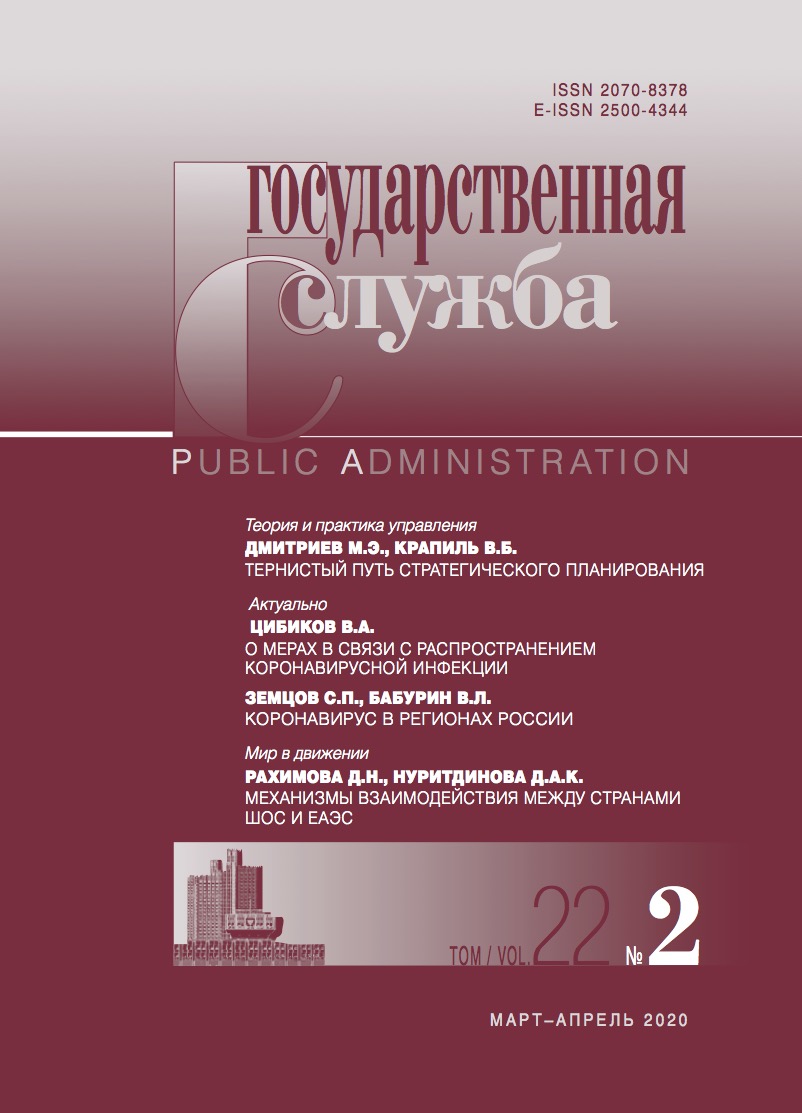Recommended link to article:
ARTEM S. GENKINа,b
аANO ‘Center for protection of bank clients and investors’
b‘Invest-Foresight’ digital media
ALEXEY A. MIKHEEVс
сMGIMO University MFA of Russia
DOI: 10.22394/2070-8378-2020-22-2-10-15
Abstract:
Due to the development of distributed ledger technology and other related innovative technologies, in the coming years we will face the disappearance of many old management functions – and the emergence of new ones. The future of the profession of notary is only one private case within a truly global trend. At the XI Gaidar Forum, in January 2020, the section ‘Legal Education and the Labour Market. Transforming or stagnating in the digital economy?’ was devoted to this topic. The article provides a number of examples of how various digital technologies help to more effectively implement the functions performed by ‘human lawyers’. Chat bot robots are considered, which are increasingly being used in a number of sectors to perform legal tasks. Examples (in particular, the UAE) are given as governments try to simplify the work of their legal services using the latest technologies. The authors conclude that lawyers will have to obtain interdisciplinary competence in the near future. They stand in solidarity with Elon R. Musk’s view on the need for proactive AI regulation. The issue of correlation of legal norms and requirements of a new technological order in the article is illustrated by an example of a confrontation between the California Department of Motor Vehicles and the state attorney general with Uber over the activities of its self-driving cars. In conclusion, the authors urge to combine efforts and assess the consequences that the emergence of digital technologies has for the legal market and for the legal education market.
Keywords:
Blockchain, technology, lawyers, contract, chat bot, smart contract, AI, competences
Received:
March, 4, 2020
References:
Blinova U.Yu., Rozhkova D.Yu. The innovator’s dilemma in modern conditions. In: Vestnik universiteta. 2013. № 4. P. 40–47. In Russian
Genkin A. S., Mavrina L. A. Blockchain plus ‘smart’ contracts: application benefits and emerging issues. In: Economika. Biznes. Banki. 2017. № 2(19). P. 136–149. In Russian
Genkin A.S., Mikheev A.A. Blokchein: kak eto rabotaet i chto zhdet nas zavtra [Blockchain: How it works and what awaits us tomorrow]. M.: Alpina Publisher, 2018. In Russian
Grin O.S. Transformation of requirements for the form of contracts taking into account the development of digital technologies. In: Aktualnye problemy rossijskogo prava. 2019. № 6. P. 49–57. In Russian
Kozubenko Yu.V. About the concept of ‘computer programs’ and information as a generic concept in relation to computer programs. In: Elektronnoe prilozhenie k Rossijskomu juridicheskomu zhurnalu. 2015. № 2. P. 34–37. In Russian
McGinnis J.O., Pearce R.G. The Great Disruption: How Machine Intelligence Will Transform the Role of Lawyers in the Delivery of Legal Services. In: Aktualnye problemy ekonomiki i prava. 2019. № 2. P. 1230–1250. In Russian
Mitin A.N. O About the processes of introduction of new information technologies in law. In: Rossijskoe pravo: obrazovanie, praktika, nauka. 2019. № 3. P. 82–86. In Russian
Polyakov S.B., Kolosova Yu.D. First experience of programming a court decision. In: Aktualnye problemy ekonomiki i prava. 2017. № 2. P. 131–144. In Russian
Somenkov S.A. Artificial intelligence: from object to subject? In: Vestnik Universiteta imeni O.E. Kutafina. 2019. № 2. P. 75–85. In Russian
Articles in Open Access mode are published under the Creative Commons Attribution 4.0 International (CC BY) license.

